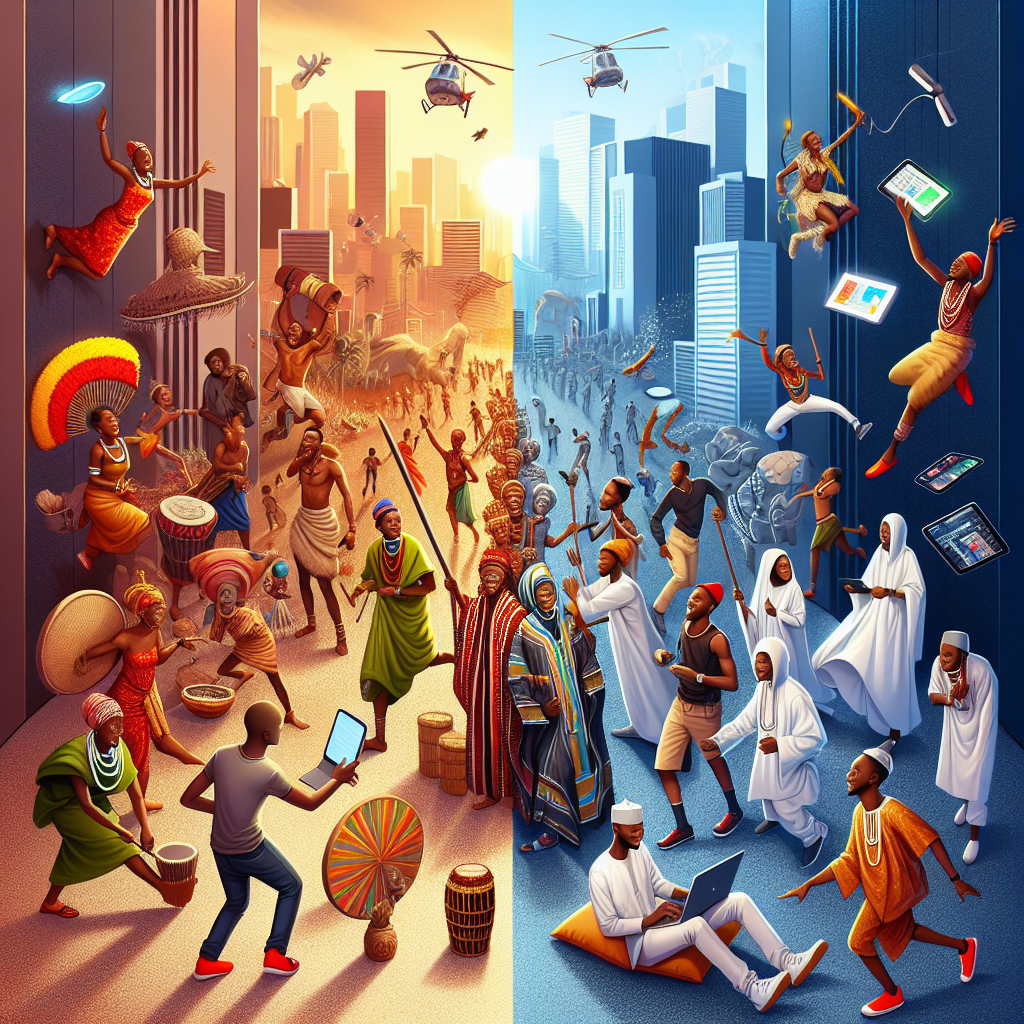Tradition and modernity are two forces that have been in constant tension throughout human history. Nowhere is this more apparent than in countries like Nigeria, where the rich tapestry of cultural practices and beliefs is constantly being challenged and reshaped by the forces of globalization and modernization.
Nigeria is a country with a diverse array of cultures, languages, and traditions. From the Yoruba of the southwest to the Hausa-Fulani of the north to the Igbo of the southeast, each ethnic group has its own unique cultural practices that have been passed down through generations. These traditions are deeply ingrained in the fabric of Nigerian society, informing everything from marriage customs to religious beliefs to the way people interact with one another.
However, as Nigeria has modernized and become more integrated into the global economy, these traditional practices have come under increasing pressure. Western influences, such as pop culture and consumerism, have made their way into Nigerian society, challenging the traditional way of life and leading to a clash between the old and the new.
One area where this clash is particularly evident is in the realm of gender roles and relationships. In many traditional Nigerian societies, women are expected to play a subordinate role to men, with strict rules governing their behavior and duties. However, as Nigeria has modernized, more and more women are challenging these traditional gender roles and seeking greater equality in society. This has led to tensions between those who wish to preserve traditional practices and those who wish to embrace more modern, egalitarian values.
Another area where tradition and modernity are in conflict is in the realm of religion. Nigeria is a country with a rich religious heritage, with Islam and Christianity being the two dominant faiths. Traditional African religions, such as Yoruba or Igbo beliefs, also play a significant role in many people’s lives. However, as Nigeria has become more globalized, and Western religions have gained greater influence, traditional belief systems have come under threat. Many Nigerian youth are turning away from traditional religions in favor of more modern, globalized forms of faith, leading to a decline in the practices and rituals that have been passed down through generations.
Despite these challenges, many Nigerians are finding ways to navigate the tension between tradition and modernity. Some are seeking to reconcile the two by incorporating elements of both into their lives, creating a unique blend of old and new. Others are choosing to reject traditional practices altogether in favor of a more modern, cosmopolitan lifestyle. But whatever path they choose, it is clear that Nigerian cultural practices are evolving and adapting in response to the changing world around them.
In the end, the evolution of Nigerian cultural practices is a testament to the resilience and adaptability of the Nigerian people. As they navigate the complex forces of tradition and modernity, they are finding ways to preserve their cultural heritage while also embracing the opportunities and challenges of the modern world. Only time will tell how these cultural practices will continue to evolve in the face of an ever-changing global landscape.

Leave a Reply